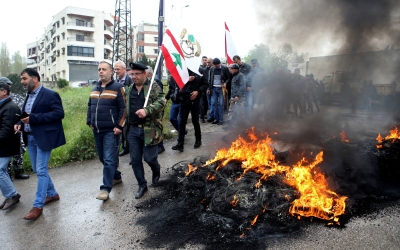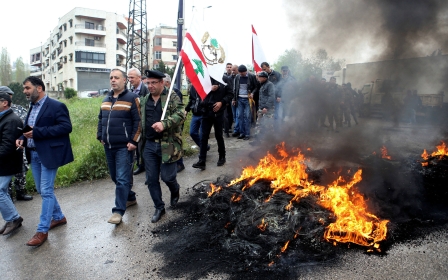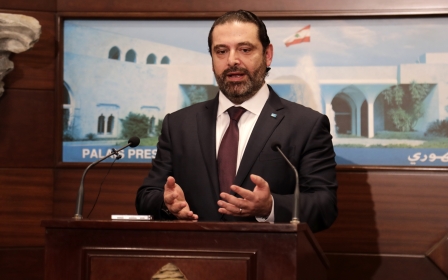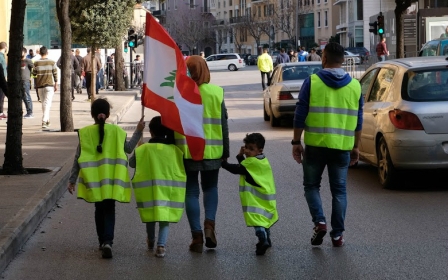Lebanon's army chief critical of austerity budget measures
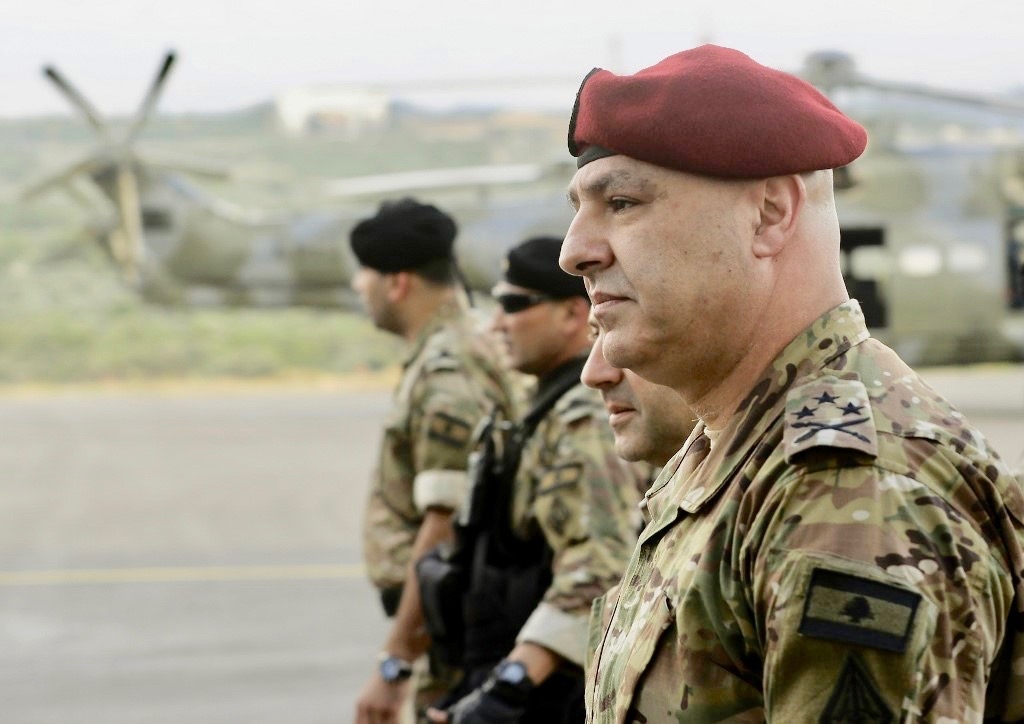
The head of Lebanon's army on Saturday criticised measures in the country's new austerity budget, including a recruitment freeze, warning that they would have a negative impact on the military.
General Joseph Aoun's intervention, rare for a Lebanese army chief, came after the government approved a budget aimed at unlocking billions of dollars in aid that an official source said includes a three-year army recruitment freeze, AFP reported.
"The ban on recruiting soldiers or cadets, and the ban on dismissal, will have negative consequences on the military institution," Aoun said in a statement published by the army.
Lebanon is one of the world's most indebted countries, and the government plan is expected to begin reducing the country's deficit.
New MEE newsletter: Jerusalem Dispatch
Sign up to get the latest insights and analysis on Israel-Palestine, alongside Turkey Unpacked and other MEE newsletters
The coalition government has agreed a 2019 budget with a projected deficit of 7.6 percent of GDP, down from 11.5 percent last year, but it must still be approved by parliament, Reuters reported.
Donors at the so-called CEDRE conference last year pledged $11bn in aid and soft loans to Lebanon, which vowed to reduce its public spending.
Aoun said the army has already been adopting a stringent approach to spending and last year returned part of its budget to the state coffers.
"The army is the backbone of Lebanon, we do not exaggerate in saying that it guarantees security and stability. Its mission is not limited to times of war and conflicts," he said.
"Despite the current security stability, significant challenges remain, such as those at our eastern, southern or maritime borders," Aoun added.
Lebanon has been hit by repeated political deadlocks in recent years, and the economic woes have been compounded by the devastating war in neighbouring Syria.
It is also technically still at war with Israel and has UN peacekeepers stationed on the frontier.
There have been numerous protests in recent weeks by Lebanese government workers, including by retired soldiers concerned about possible pension reductions against the austerity measures.
Civil servant salaries are to be cut under the new budget, which would also introduce a two percent tax on imports and increase taxes on interest income from bank deposits from seven to 10 percent.
The plan still needs to be ratified by parliament, giving lawmakers an opportunity to propose amendments.
Lebanon has one of the world's highest debt burdens, equivalent to about 150 percent of GDP, and electricity subsidies cost as much as 4 percent of GDP a year, Reuters said.
Lebanon's two other main expenses are the cost of debt servicing and the large public payroll.
Credit ratings agencies have expressed doubt that Lebanon can meet its deficit goals. S&P Global said earlier this week it expected a deficit of 10 percent of GDP and Fitch said it forecast a deficit of 9 percent of GDP.
Budget targets
Labour Minister Camille Abousleiman said the government could meet its budget targets, but that parliament must agree on the plan without big changes.
"It is critical from a financial perspective that we don't start caving in and deleting some of the difficult measures that are currently in the budget," Abousleiman told Reuters.
Asked if Lebanon could avoid a default given its very large stock of public debt, Abousleiman said: "I am hopeful," but he added that the country also needed to adopt "ambitious structural reform" on top of fiscal retrenchment.
Economists from two major donors, the World Bank and the European Bank for Reconstruction and Development, this week told Reuters that Lebanon's budget plan was a good step.
Middle East Eye delivers independent and unrivalled coverage and analysis of the Middle East, North Africa and beyond. To learn more about republishing this content and the associated fees, please fill out this form. More about MEE can be found here.


